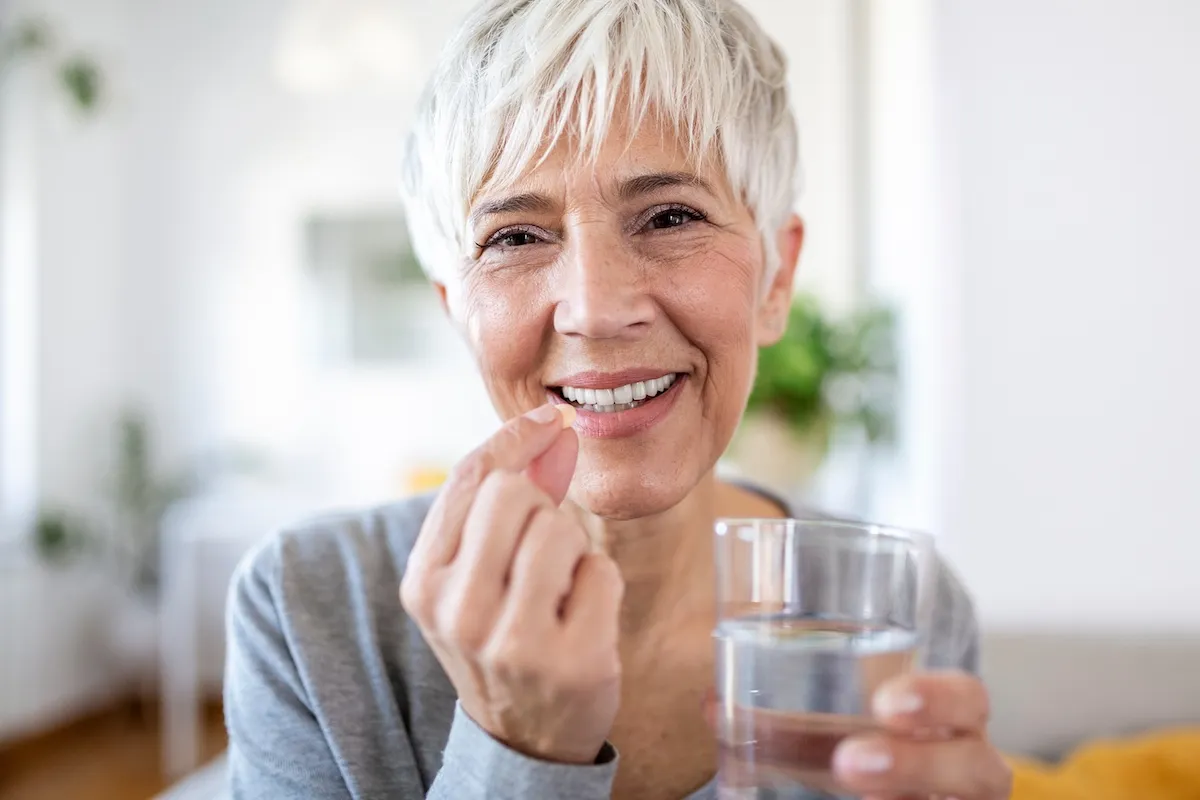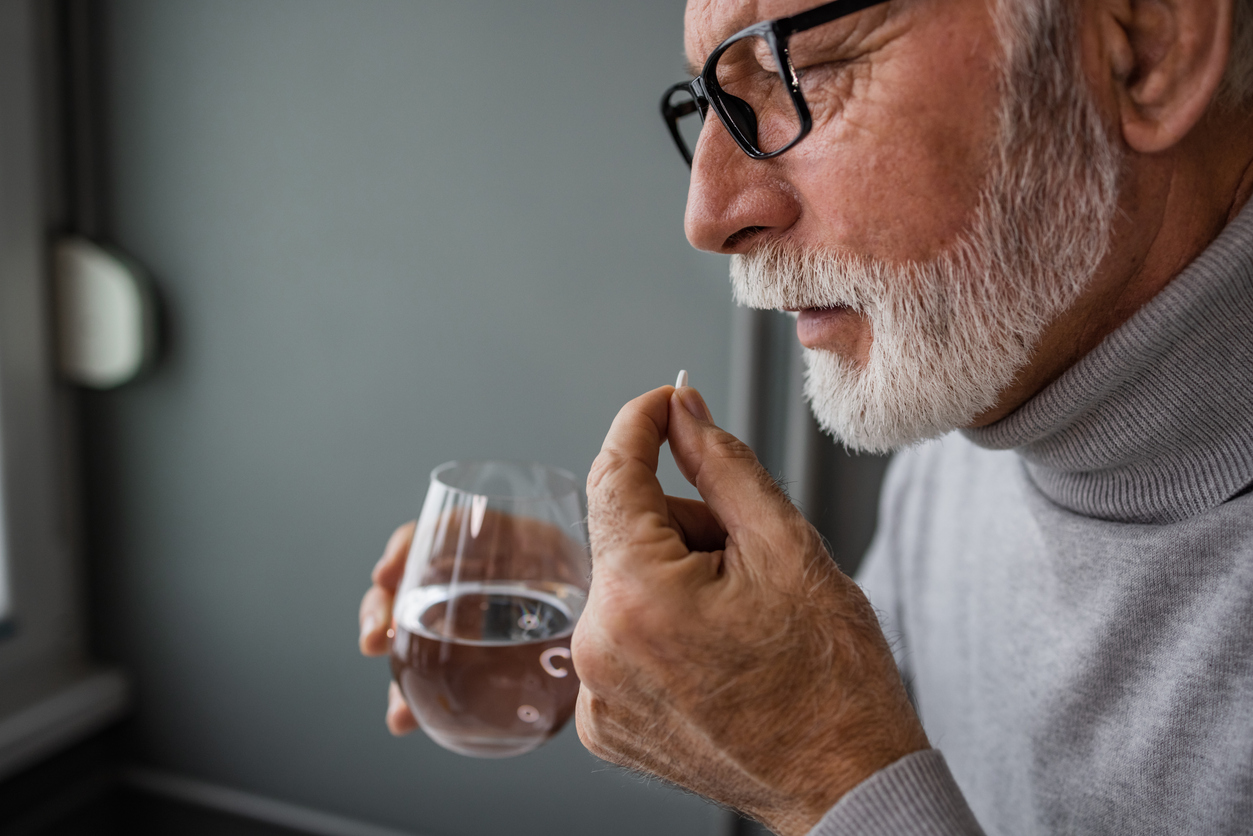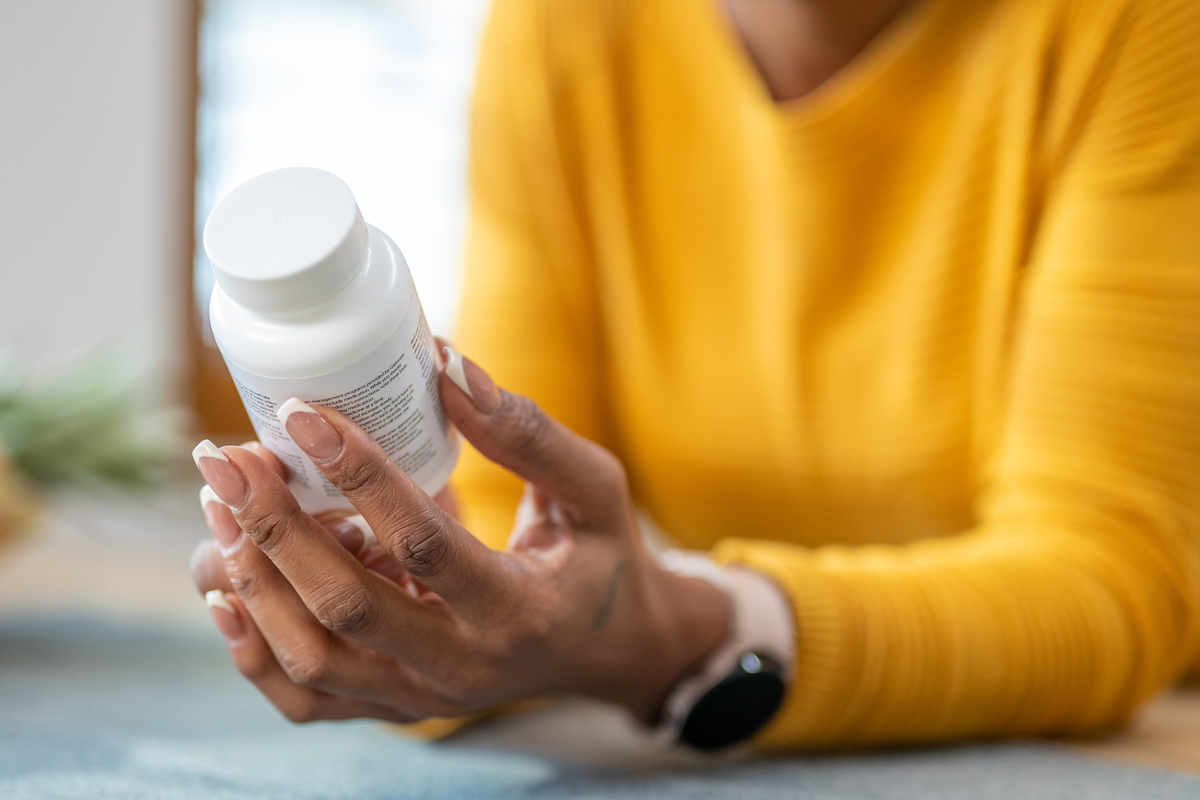The 5 Worst Supplements for Anti-Aging, Doctors Say

Supplements can benefit your body best when they’re used to fill known nutritional gaps. However, according to a recent poll conducted by the American Osteopathic Association (AOA), a whopping 86 percent of Americans take supplements, while only 21 percent have a confirmed nutritional deficiency. In the majority of cases, people take supplements with broader goals in mind: For instance, to boost their energy levels, improve their overall health, or combat the effects of aging. These non-specific objectives leave plenty of room for products that are ineffective, misleading, and in some cases, downright harmful.
“The anti-aging supplement market is a key driver of the industry’s growth,” says Terri DeNeui, DNP, ACNP, APRN-BC, chief medical officer of EVEXIAS Health Solutions. “Pharmacies, online retailers, social media-only companies, and bigger industry leaders respond to this market by suggesting that taking these supplements can improve health and longevity. However, it’s crucial to note that there are no governing bodies to oversee over-the-counter (OTC) supplement benefits. This lack of regulation raises serious concerns about the quality and efficacy of these products.”
Having realistic expectations about how a supplement may benefit your health and longevity is the first step in safeguarding yourself against bad-acting brands. It’s important to remember that while some supplements may achieve their aims of reducing inflammation, improving appearances, or enhancing your comfort as you age, claims that a product can turn back the sands of time are typically too good to be true.
“As we age, we also need to be more cautious of interactions between medications and supplements,” adds Ana Reisdorf, MS, RD, a registered dietitian and founder of The Food Trends. She says this makes it increasingly important to always talk to your doctor before adding a new supplement to your lineup. That said, these are the five worst anti-aging supplements.
RELATED: 5 Best Anti-Aging Supplements, According to a Doctor.
1
Large doses of Vitamin A and E

Vitamin A and E, found in skin creams and serums, are often used topically for their anti-aging properties. However, experts say that taking too much of these vitamins in supplement form can cause unintended side effects.
“Many supplements people take for anti-aging don’t work, but what people really have to look out for is when they become toxic to the body,” says Sue Decotiis, MD, a medical weight-loss physician based in New York City. For example, high doses of antioxidant vitamins like vitamin A and E are very fat-soluble. They can be harmful because they tend to build up in the body.”
“Although vitamin E is vital for health, high doses of vitamin E supplements can be harmful. They can increase the risk of stroke and may interact negatively with certain medications, including those for cholesterol,” adds Reisdorf.
2
Dehydroepiandrosterone (DHEA)

Your body naturally produces Dehydroepiandrosterone, or DHEA, in the adrenal glands to make the male and female sex hormones androgen and estrogen. However, your levels of DHEA decrease with age.
“DHEA supplements are frequently promoted as anti-aging aids due to their ability to replenish declining hormone levels associated with aging, potentially mitigating age-related effects,” says Michelle Routhenstein, RD, CDCES, CDN, a preventive cardiology dietitian, registered dietitian nutritionist, and certified diabetes educator. “However, the scientific evidence supporting the efficacy of DHEA as an anti-aging supplement is limited and inconsistent.”
She adds that DHEA supplements can also potentially cause harm in the form of liver damage: “It is also advised against, especially in those with high cholesterol levels and/or ischemic heart disease since it may lower HDL cholesterol levels, the potential ‘good’ cholesterol that may help to reduce the risk of cardiovascular disease.”
RELATED: 8 Best Supplements for Hair Growth, Doctors Say.
3
Prevagen

Prevagen is a supplement commonly marketed as a memory booster. It claims to deliver results within 90 days. However, many experts urge caution, saying its data is unproven.
“Its makers have settled several lawsuits regarding their marketing assertions,” writes Consumer Reports. “And in an ongoing government case, they’ve been charged with making deceptive health claims. As with other supplements, like Focus Factor and Neuriva, Prevagen’s makers did not have to prove its efficacy and safety before putting it on the market.”
Julie Nepveu, a senior staff attorney for AARP, said in an interview with the organization that Prevagen’s claims are not only “unsubstantiated and misleading” but also intentionally targeted to vulnerable populations.
“Supplement companies have keyed into the idea that older people are going to spend a ton of money on their products because they want to feel better. We don’t think they should get to prey on people’s fears or claim their product offers some health benefit they cannot prove,” she said.
4
Single amino acid supplements

Some amino acids have demonstrated promising anti-aging effects in preliminary research. In particular, the essential amino acid Taurine, found in just about every tissue in the human body, may increase both lifespan and healthspan—or the number of years a person lives free of disease or disability. Many people are now turning to Taurine supplementation to enjoy those benefits.
However, many experts advise against taking single amino acid supplements, which are often touted for their supposed ability to boost longevity.
“While the body needs amino acids, taking single amino acids can disrupt the balance of nitrogen in the body and interfere with amino acid absorption and metabolism,” Reisdorf warns.
RELATED: 12 Supplements You Should Never Take Together, Medical Experts Say.
5
Aristolochia

Experiencing the stiffening of your joints and muscles is one feature of aging that most people would happily do without. Yet experts say you should think twice before taking anti-arthritis supplements that claim to turn back the clock.
Aristolochia, often called birthwort, has been used in Chinese medicine for centuries to reduce symptoms of arthritis. Today, it’s often found in the form of a dietary supplement or “traditional medicine” used to treat a broad base of rheumatic diseases, including bone, muscle, joint, ligament, and muscle conditions.
However, far from improving or lengthening life through anti-aging benefits, recent research found that Aristolochia can cause thousands of genetic mutations in the human body, linking the supplement to multiple cancer types, including cancer of the upper urinary tract, bladder, liver, and kidneys.
Best Life offers the most up-to-date information from top experts, new research, and health agencies, but our content is not meant to be a substitute for professional guidance. When it comes to the medication you’re taking or any other health questions you have, always consult your healthcare provider directly.
- Source: AOA: Poll finds 86% of Americans take vitamins or supplements yet only 21% have a confirmed nutritional deficiency
- Source: Molecular Vision: Review: Taurine: A “very essential” amino acid
- Source: Columbia Doctors: Taurine May Be a Key to Longer and Healthier Life
- Source: Science Translational Medicine: Genome-Wide Mutational Signatures of Aristolochic Acid and Its Application as a Screening Tool